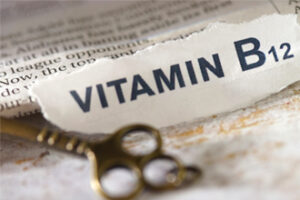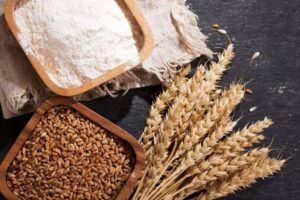Statistics say that approximately 15% of the world’s population suffers from B12 deficiency.
Symptoms of B12 deficiency are wide ranging and can be difficult to pin point as B 12 deficiency. Some of the common symptoms are weakness, apathy, memory loss, acidity, weight loss, nausea and vomiting, anemia, mental confusion, delusions, paranoia, respiratory symptoms and allergies. Long-term deficiency can even lead to heart attacks or stroke and irreversible damage to brain and nervous system.
What is Vitamin B12 and what importance does it play in our body?
What is interesting is that Vitamin B12 is in fact, not a vitamin at all. It is a bacteria produced by soil microbes that live in symbiotic relationship with plant roots. In a more natural world, Vitamin B12 would be naturally available in organic fruits and vegetables straight from the soil, drinking water from natural sources such as ponds and rivers and basically living in a natural habitat connected with the earth.
People living in natural habitats seldom have B12 deficiency, because they end up absorbing it directly from the soil and water. However, if you are living in a city and have little access to nature, getting it naturally may be a challenge.
B 12 is important for replication of our DNA. It is vital for the formation of Red blood cells and for the proper working of our nerve cells. It also ahs a role to play in our bone health and mineral density.
Hence a deficiency of this vital nutrient should not be neglected. We literally need a very tiny amount of this nutrient and it can be stored in our body for up to 3 years.
Sources of B12
If you’re living in a city, with little access to nature, here are some ways in which you can get B12 through food.
1. Organic and natural produce (fruits and veggies) will contain some B12. Make sure to not wash your produce with chemicals as chemicals destroy B12.
2. Fermented foods also contain bacteria that make B12, so make sure to include a good dose of fermented foods such as idli, dhokla, sauerkraut, kimchi, miso etc. in your diet.
3. Certain foods such as white button mushrooms and slightly over ripe bananas.
4. Lentil and seed sprouts contain a good amount of B12.
5. Fortified foods – some packaged foods such as fortified soymilk and nutritional yeast have added B 12.
Don’t animal foods contain B12 ?
Yes, milk, meat, eggs – all contain B12. The problem with consuming animals foods is that they come loaded with dietary, fat, cholesterol and hormones which actually makes them not a preferable source to meet your B12 requirements.
What is also important to understand is that animal foods themselves don’t contain B12, they are just carriers or middlemen of the nutrient.
Traditionally animals got their B12 from the soil and water. These
days, factory farmed animals are given B12 supplements.
In both cases, the better option is to try and meet our needs without
the middleman.
Vitamin B12 deficiency due to non absorption
These days, a lot of people (non-vegetarians included) are deficient in Vitamin B12 despite taking enough in their diet or as an oral supplement. Here are a few possible reasons for non absorption :-
- Lack of intrinsic factor – Something called the intrinsic factor present in our stomach is what helps absorb B12. Highly acidic diets (contained animal products and refined foods) can destroy this and lead to non –absorption. Some aged people experience this too.
- Damage to Gut Flora – Our gut micro flora can suffer damage due to intake of antibiotics, excessive chemicals in food and gut irritants such as dairy, sugar, caffeine and alcohol. In such cases too Vitamin B12 may not be absorbed.
If this is the case, supplementation through injections is the only option, until your gut health gets better. (please consult your medical practitioner for further advice).
- Certain medications could be coming in the way and inhibiting absorption.
Again you’d need to consult a medical practitioner for further support and advice.
Let me know if you found this helpful.
 EAT PLANTS
EAT PLANTS MOVE DAILY
MOVE DAILY SLEEP MORE
SLEEP MORE



